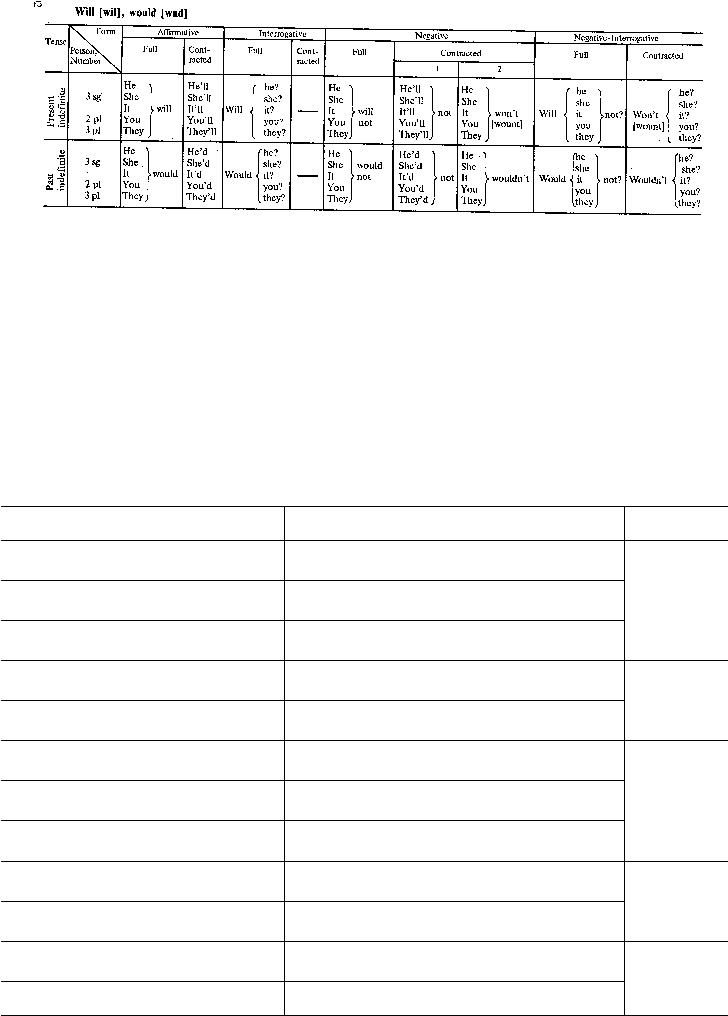
342
Note 1:
As a future tense auxiliary will (would) in its full form is commonly used with the 2nd and the 3rd persons. Nowadays
however there is strong tendency to use it with the 1st persons as well, especially in American English.
Note 2:
The contractions ‘ll and ‘d stand for will and would, not for shall and should, though they are widely used with the 1st
persons as well.
Archaic Forms of the Auxiliaries
The forms given in the tables above are those of modern standard English. One may also come across archaic forms,
mainly in poetry or texts where an archaic effect is intended.
Forms
Grammatical characteristics
Verbs
dost [d?St], [d?st]
Present indefinite, 2nd person singular
doth, doeth [d??], ][d??]
Present indefinite, 3rd person singular
didst [d?dst]
Past indefinite, 2nd person singular
to do
art [a:t], [?t]
Present indefinite, 2nd person singular
wast [w?st], [w?st], wert [w?:t], [w?t]
Past indefinite, 2nd person singular
to be
hast [h?st], [h?st], |?st], [st]
Present indefinite, 2nd person singular
hath [h?
?], [h
??], [??]
Present indefinite, 3rd person singular
hadst [h?dst], [h?dst], [?dst]
Past indefinite, 2nd person singular
to have
shall [??lt], [?
?
lt], [?lt]
Present indefinite, 2nd person singular
shouldst, shouldest [?udst]
Past indefinite, 2nd person singular
shall
wilt [w?lt], [?lt], [?t]
Present indefinite, 2nd person singular
wouldst, wouldest [wudst]
Past indefinite, 2nd person singular
will

